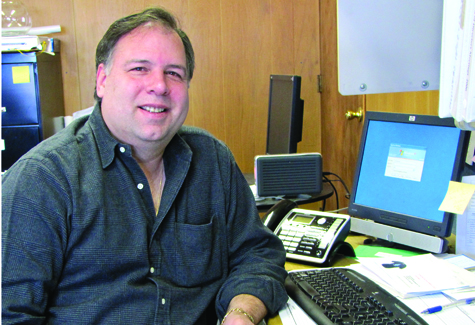Q&A with new leader of North Fork Environmental Council

As it embarks on what it’s calling a “west to east agenda,” the North Fork Environmental Council has chosen a new leader, Bill Toedter, 51, of Southold, to remedy what members regard as their organization’s major shortcoming — a weak effort to communicate what they have achieved. He took over for former president Ken Rubino in November.
“We’ve been quiet and there’s a perception,” said Mr. Toedter, “of ‘what have you been doing?’ We’re here, we’re active and we want to become involved with more.”
“We have been a failure at advertising the good works that we do,” said Robert Feger, an NFEC vice president and former organization president.
Mr. Toedter studied marine biology at Occidental College in Los Angeles, but then returned to the North Fork, where he’d grown up, to pursue a career in corporate communications, operating his own consulting firm, Conceptualeyes. He was initially involved in educating employees about benefits, but his scope widened to include marketing and branding. Now he said he’s determined to use his communication skills to benefit the NFEC.
“There’s a little bit of complacency” among residents who fail to recognize the impact of unchecked threats to the environment, he said. That’s where he thinks he can educate the public and enlist volunteer support to tackle projects that can make a difference.
He’s a third generation North Fork native. Although he spent some of his early years in New York City, “My growing up was here. I saved up all my money to buy a boat, not a car,” he said.
His answers to some questions posed recently by Times/Review Newsgroup:
Q — How is your outreach different today?
A — “The new [NFEC] newsletter was constructed to integrate various issues, from the development at EPCAL, millions of dollars spent on the fish ladder in Riverhead, the development of Sound Avenue. If you look at Sound Avenue and protecting the rural nature of it, what leads you to believe that you shouldn’t be doing the same for County Road 48 and 25 out to Orient? Once you get out there, for people to come and enjoy this, you need to talk about mass transit. Things are connected. What we do about trying to preserve the rural quality of Sound Avenue leads to transportation issues, which leads then to traffic issues and the use of the railroads and the use of the county bus system. It talks about how we then protect the quality of life here on the North Fork.
Bringing board meetings to the different towns and getting students involved and planting seeds early is important. A marketing scheme is about hooking them young. We need eyes all over the place. We also need hands to help us. We need minds to help us think through these things.
If you do an initiative once, that raises awareness, but you also have to have the steps in there for them to take action. But what happens down the road as people move out and other people move in if you don’t keep that awareness going.”
Q — How extensive do you expect funding cuts to be?
A — “In general, you’re looking at almost a quarter of every federal dollar that was due to be spent being eliminated. That means all the federal funds are under the knife.
Q — What are the major problems on your radar threatening our environment?
A — “Nitrogen loads in groundwater resulting from wide use of septic tanks. The first thing Southold is going to do — and all the towns are mandated to address — is stormwater runoff. But where does the money come from? Where are you going to get the money to re-engineer all the roads and all the catch basins?”
Q — What’s your pitch to potential NFEC members?
A — “We’ve got to answer the question people have, ‘What does it mean to me.’ If you’re drawn to the North Fork or have a business interest here … why aren’t you a member of the North Fork Environmental Council to help to save those things or at least why aren’t you doing the things that help protect those?”
Q — Money aside, what obstacles do you face?
A — “We’re not going to make everybody happy with what we do. We’re not anti-business. We’re not anti-anything. In 2012, we’re coming up on the 40th anniversary of NFEC and the reason that we’ve been here for 40 years is not that we change, but we keep building on the good that the organization has done.”


